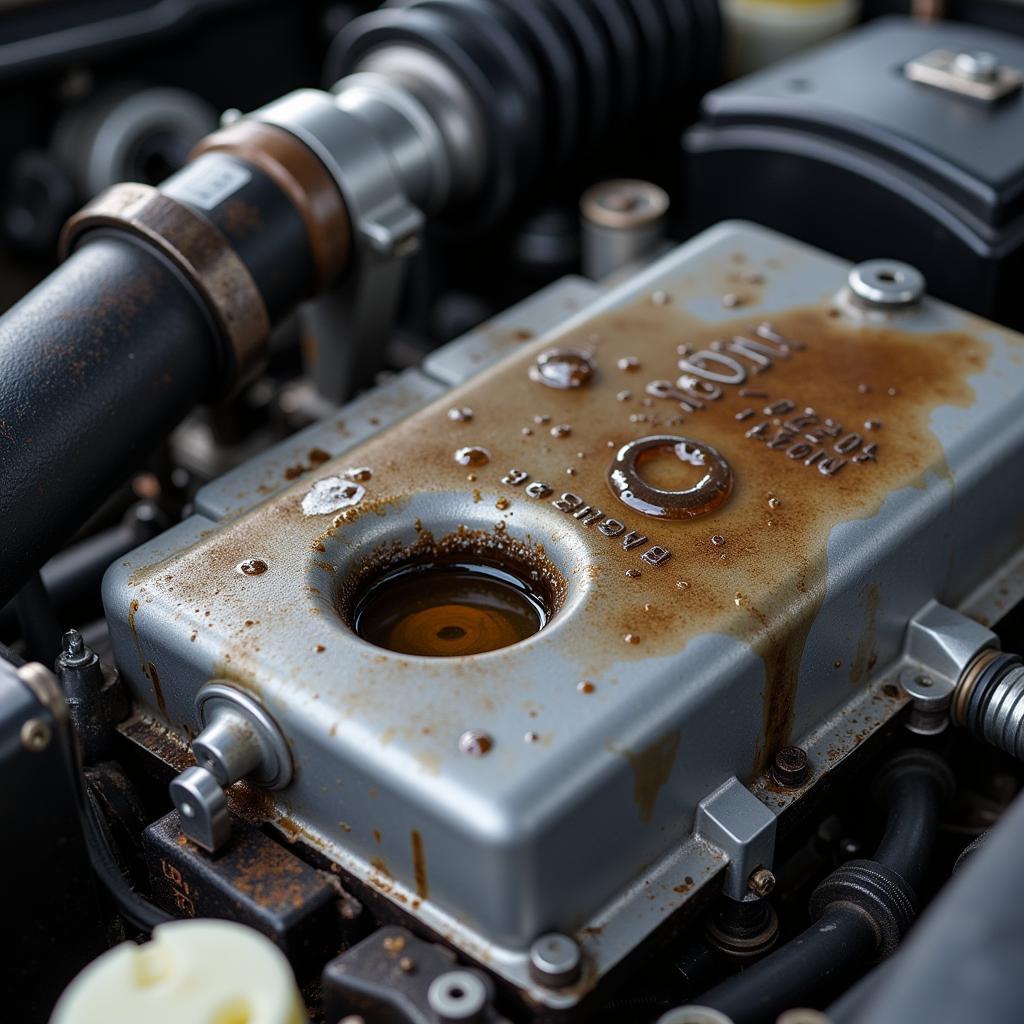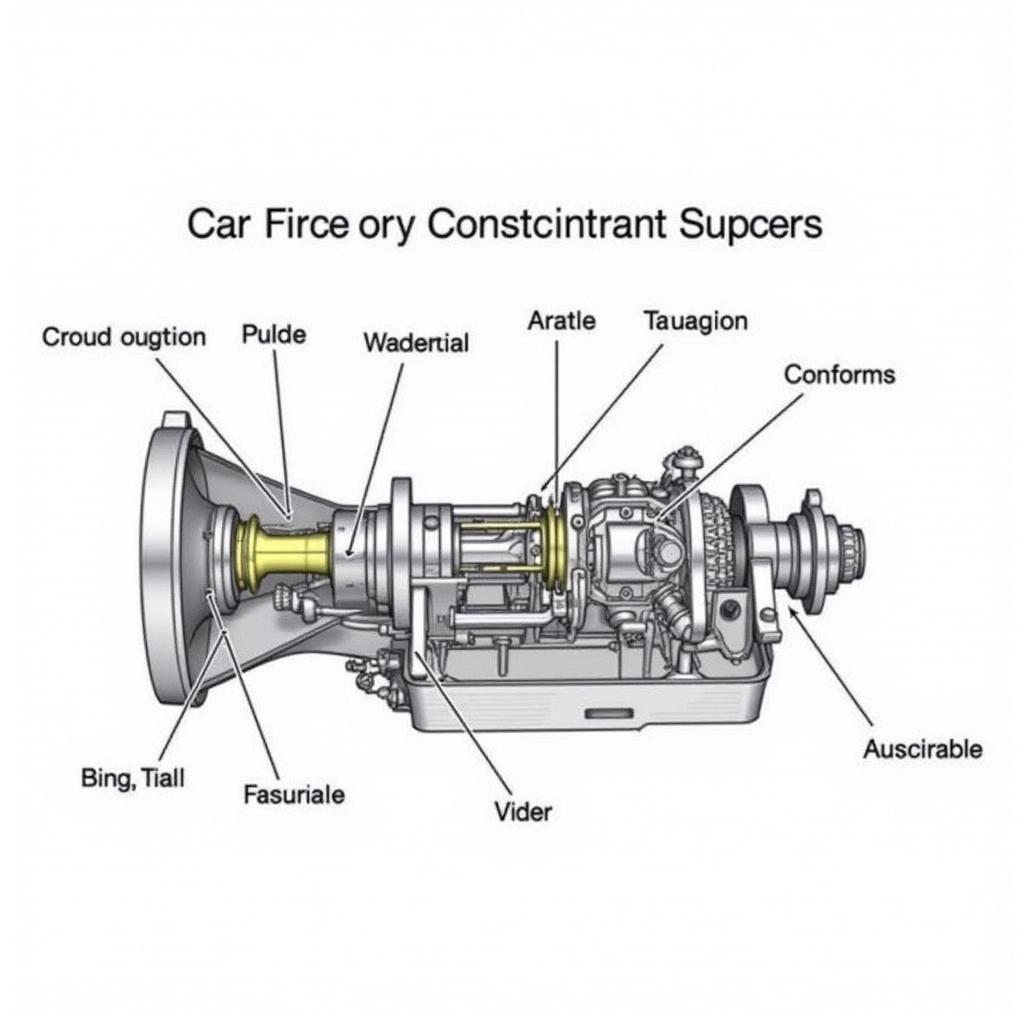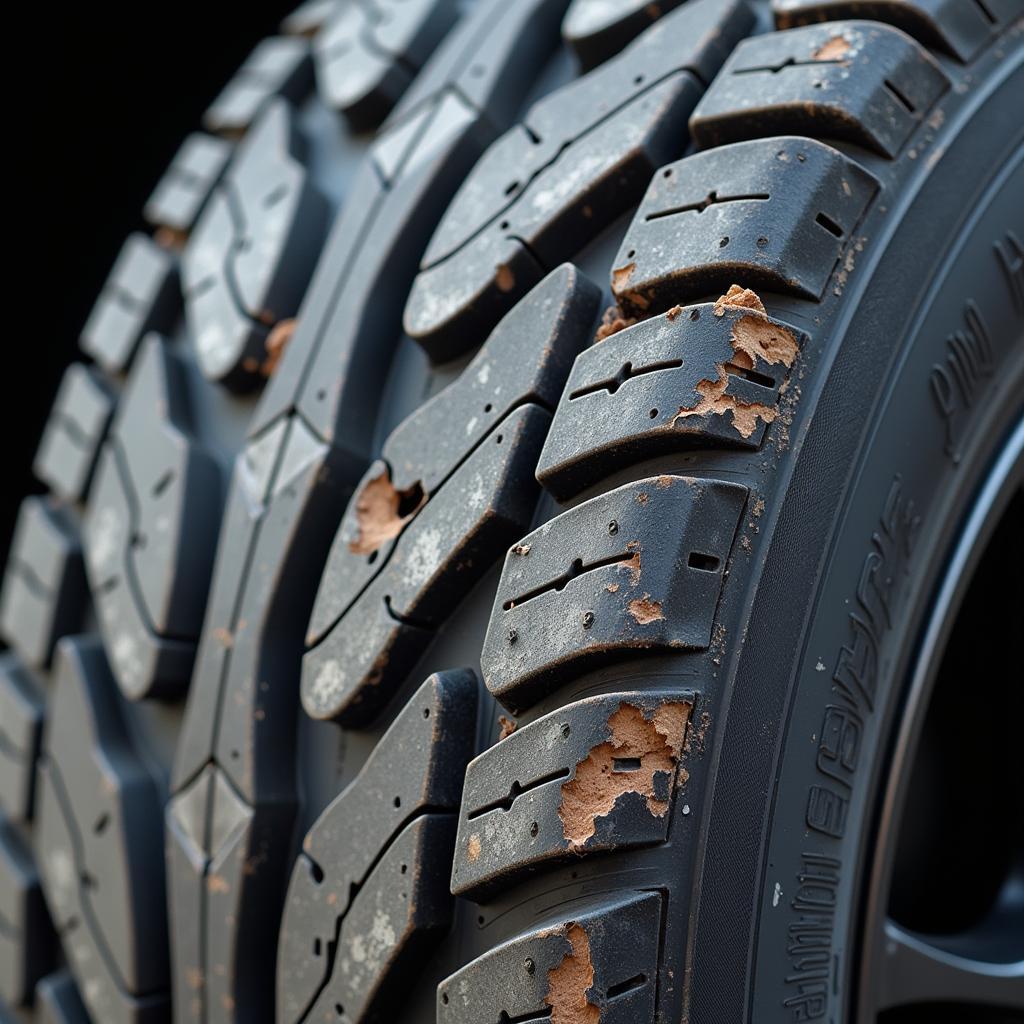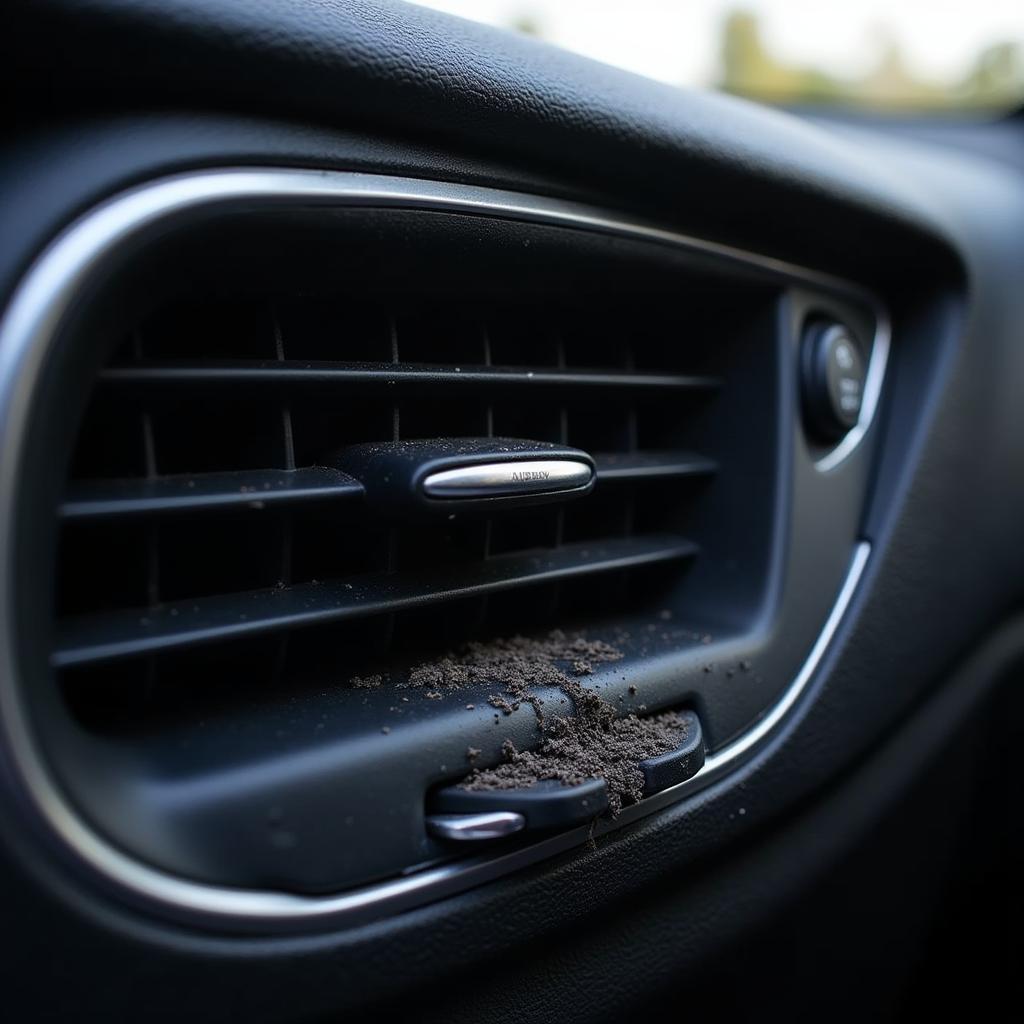Buying a used car can be a great way to save money, but it comes with the risk of encountering problems down the line. This guide will cover some of the most common issues found in used cars, helping you make informed decisions and avoid potential headaches.
Understanding Common Used Car Issues
It’s important to understand that used cars, by their very nature, have accumulated wear and tear. This means they’re more susceptible to problems than brand-new vehicles. While some issues might be minor and easily fixed, others can be more serious and expensive.
Knowing what to look out for can make all the difference in finding a reliable used car. Here’s a breakdown of some typical issues:
Engine Problems
Engine Misfires
“A common issue in used cars is an engine misfire, which can be caused by a variety of factors, such as faulty spark plugs, ignition coils, or fuel injectors.” – John Smith, Automotive Technician
Engine misfires are a common problem in used cars and can cause various symptoms, including:
- Rough idling: The engine runs unevenly and vibrates when idle.
- Reduced engine power: The car may struggle to accelerate or maintain speed.
- Increased fuel consumption: The engine uses more fuel than usual due to inefficient combustion.
- Check engine light: The warning light illuminates on the dashboard.
Oil Leaks
“One of the most frequent problems I encounter with used cars is oil leaks. These can be tricky to diagnose, as the source of the leak can be difficult to pinpoint.” – Sarah Jones, Master Mechanic
Oil leaks are a serious concern as they can lead to engine damage if left untreated. Common sources of oil leaks include:
- Valve cover gasket: This gasket seals the valve cover to the cylinder head.
- Oil pan gasket: This gasket seals the oil pan to the engine block.
- Oil filter: A loose or damaged oil filter can cause leaks.
- Oil pump: A faulty oil pump can lead to internal leaks.
 Car engine oil leak
Car engine oil leak
Engine Cooling System Issues
Engine overheating is a serious problem that can cause significant damage. Common causes include:
- Radiator leaks: Cracks or holes in the radiator can cause coolant to leak out.
- Thermostat failure: A faulty thermostat can prevent the engine from reaching optimal operating temperature.
- Water pump failure: A damaged water pump can stop circulating coolant, leading to overheating.
- Low coolant levels: Simply running low on coolant can cause overheating.
Transmission Problems
Transmission issues can be quite expensive to repair. Here are some common problems:
- Slipping gears: The transmission doesn’t engage smoothly, causing the car to jerk or hesitate when shifting.
- Hard shifting: The transmission shifts gears harshly and abruptly.
- Transmission fluid leaks: Transmission fluid leaks can lead to premature wear and damage.
- Clutch failure: This can affect manual transmissions and can cause problems shifting gears or even stalling the car.
 Close-up of car transmission system
Close-up of car transmission system
Electrical Problems
Battery Problems
A worn-out or failing battery is a common issue in used cars. Symptoms include:
- Dim headlights: The headlights are less bright than usual.
- Slow starting: The car takes a long time to crank and start.
- Electrical problems: The car’s electrical systems may malfunction.
- Dead battery: The battery completely dies, preventing the car from starting.
Alternator Problems
The alternator is responsible for charging the battery. A faulty alternator can lead to:
- Battery discharge: The battery won’t be able to hold a charge.
- Electrical problems: Electrical systems may fail due to insufficient power.
- Warning lights: The alternator warning light will illuminate on the dashboard.
Suspension Problems
The suspension system is responsible for absorbing shocks and keeping the car stable. Common issues include:
- Shock absorbers: Worn-out shock absorbers can cause a bouncy ride and poor handling.
- Struts: Similar to shock absorbers, struts can wear out and cause suspension problems.
- Sway bars: Worn-out sway bars can cause excessive body roll when cornering.
- Control arms: Damaged control arms can affect steering and handling.
 Worn-out car tire with visible damage
Worn-out car tire with visible damage
Brake Problems
Brake Pads/Shoes
Worn-out brake pads or shoes are a common issue in used cars and can cause:
- Squealing or grinding noises: Worn-out brake pads or shoes can create a loud screeching sound.
- Reduced braking performance: The brakes may feel less responsive or require more pressure to stop.
- Brake pedal pulsation: The brake pedal may vibrate when pressed.
Brake Rotors/Drums
Worn-out brake rotors or drums can also cause braking problems. Common issues include:
- Warping: Brake rotors or drums can warp due to excessive heat or wear.
- Grooves: Deep grooves or scoring can reduce braking efficiency and cause noise.
- Rust: Rust can form on brake rotors or drums, reducing braking performance.
Other Common Problems
Tires
Worn-out or damaged tires can cause:
- Uneven wear: The tires may wear out unevenly due to improper alignment or inflation.
- Reduced traction: Worn-out tires can affect the car’s ability to grip the road.
- Blowouts: Damaged tires can blow out, potentially causing accidents.
Air Conditioning
A faulty air conditioner can make driving uncomfortable, especially during hot weather. Common issues include:
- Refrigerant leaks: Leaks in the air conditioning system can cause it to lose refrigerant and stop working.
- Compressor failure: The air conditioning compressor is responsible for circulating refrigerant. A faulty compressor can cause the system to fail.
- Blower motor problems: A faulty blower motor can prevent air from being circulated through the cabin.
 Car air conditioning vent with dust
Car air conditioning vent with dust
Tips for Avoiding Used Car Problems
- Get a Pre-Purchase Inspection: Have a qualified mechanic inspect the car before you buy it. This will help you identify any potential problems and negotiate a fair price.
- Research the Vehicle’s History: Use services like Carfax or AutoCheck to get a report on the vehicle’s history, including accidents, maintenance records, and title information.
- Test Drive Thoroughly: Take the car for a test drive on different types of roads and in various driving conditions. Pay attention to how it handles, brakes, accelerates, and shifts.
- Check for Warning Lights: Look for any warning lights on the dashboard that may indicate a problem.
- Listen for Unusual Noises: Pay attention to any unusual noises coming from the engine, transmission, brakes, or suspension.
- Inspect Fluids: Check the levels and condition of the engine oil, coolant, transmission fluid, and brake fluid.
Conclusion
Buying a used car can be a smart financial decision, but it’s crucial to be aware of potential problems. By understanding common issues and taking the necessary precautions, you can increase your chances of finding a reliable and affordable vehicle.
If you’re still unsure about a used car, don’t hesitate to reach out for expert advice.
AutoTipPro can help you find the perfect used car and ensure it’s in good condition.
Contact us today:
Phone: +1 (641) 206-8880
Office: 500 N St Mary’s St, San Antonio, TX 78205, United States
FAQ
Q: What are the most common problems with used cars?
A: Some common issues include engine problems like misfires and oil leaks, transmission problems like slipping gears or hard shifting, electrical problems like battery issues or alternator failures, and suspension problems like worn-out shock absorbers or struts.
Q: How can I avoid buying a used car with problems?
A: Get a pre-purchase inspection from a qualified mechanic, research the vehicle’s history, test drive it thoroughly, check for warning lights, listen for unusual noises, and inspect fluids.
Q: What should I do if I find a problem with my used car?
A: If you find a problem with your used car, it’s important to address it promptly to prevent further damage. You can take it to a mechanic for diagnosis and repair or contact the seller if the issue is covered under the warranty.
Q: Can I get a warranty on a used car?
A: Some used cars come with a limited warranty, but it’s not always guaranteed. You can also purchase an extended warranty from a third-party provider.
Q: How can I find a reliable used car?
A: Research the make and model of the vehicle you’re interested in, look for cars with a good service history, and get a pre-purchase inspection from a qualified mechanic.







Leave a Reply